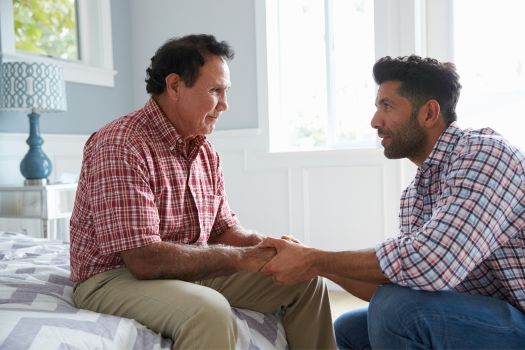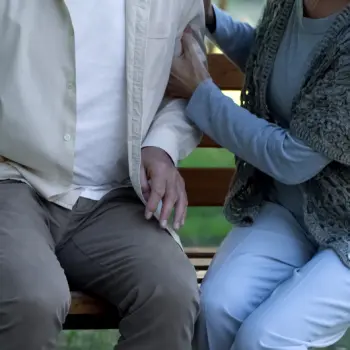
Parkinson’s disease is a neurological disorder that affects movement. The disease is degenerative and slowly worsens over time. Caring for someone with Parkinson’s disease has unique challenges. Learn what to expect when caring for a senior loved one with Parkinson’s.
1. Remove Safety Concerns to Prevent Injuries
Whether your loved one stays with you or is still living at home, it’s best to go through the house and remove hazards that could cause trips and falls. People with Parkinson’s disease have a difficult time moving around and could be seriously injured if falls should occur. Install grab bars in bathrooms so your loved one can get on and off the toilet safely, remove throw rugs, run electric cords safely along walls, and make sure there’s adequate lighting in walkways.
2. Keep Up on Medication Organization
Many seniors are prescribed medications to address the symptoms of Parkinson’s disease. The number or frequency of these medications may change as the disease progresses. For the medications to be effective, they must be taken regularly. Set up a schedule with reminders for your loved one to take the medications. Color-coded pill boxes that correspond to days of the week may be especially helpful to ensure all medications are taken as directed.
Older adults with Parkinson’s may need help with important daily activities such as making sure they take their medications on time. Some seniors only require help with a few daily tasks so they can maintain their independence. However, those living with serious illnesses may need more extensive assistance. Luckily, there is professional live-in care Fort Lauderdale seniors can rely on. Home can be a safer and more comfortable place for your loved one to live with the help of an expertly trained and dedicated live-in caregiver.
3. Encourage a Healthy Diet
Though there isn’t a recommended diet for Parkinson’s disease, it’s important that your loved one eat a healthy, well-balanced diet for optimal health. People with Parkinson’s disease may lose weight, become constipated, or feel nauseated as a side effect of medications. Additionally, some seniors have difficulty eating, which makes eating right more challenging.
Work with a doctor and a registered dietician to ensure your loved one is eating a variety of whole grains, protein, and fruits and vegetables for optimal health. High-fiber foods such as legumes or oatmeal may be especially helpful for digestive issues.
Even if your loved one finds it challenging to eat well or prepare nutritious meals, he or she can still live at home safely and securely. Many seniors prefer aging in place over moving to assisted living facilities. If your senior loved one needs assistance to remain safe and comfortable while living at home, reach out to Assisting Hands Home Care, a leading home care agency. Our dedicated in-home caregivers can assist with meal prep, bathing and grooming, exercise, medication reminders, and many other important tasks.
4. Ensure Opportunities for Exercise
Getting exercise is important for seniors with Parkinson’s disease. Though it may be more difficult as the disease progresses, look for opportunities for your loved one to get physical activity each day. Start with stretches and short walks.
Under a doctor’s supervision, your loved one may be able to enjoy biking, swimming, or hiking until the disease progresses to a later stage. Talk with your loved one’s doctor or a physical therapist for exercise ideas.
5. Learn How to Manage “Freezing”
As Parkinson’s disease progresses, your loved one may experience periodic “freezing” episodes, or temporary paralysis. These episodes can happen at any time and can be very frightening and disorientating.
When freezing occurs, try to prevent your loved one from falling. Stay calm and move your parent to a safe space. Talking in a calm voice or playing quiet music may help as your loved one regains movement. Caring for a loved one with Parkinson’s disease can be challenging, but family caregivers don’t have to go through it alone. If your senior loved one has been diagnosed with a serious condition and needs help with tasks like meal prep, transportation, medication reminders, bathing, and grooming, reach out to Assisting Hands Home Care, a leading provider of home care Fort Lauderdale families can trust. We also offer comprehensive care for seniors with dementia, Alzheimer’s, and Parkinson’s. We will work with you to create a customized home care plan that’s suited for your loved one’s unique needs. Call the Assisting Hands Home Care team today.







